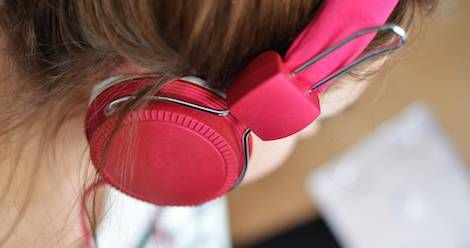
If You Track Your Reading, Do You Count Audiobooks?
This is a guest post from Allison Page Russell. Writer. Reader. Watcher of exorbitant amounts of television. Allison is a Michigan native with an MA in professional writing from Carnegie Mellon. She earns her living writing for other people and then writes for herself at night. She currently lives outside Pittsburgh with her beloved dog Gulliver, who is kind of a jerk. Follow her on Twitter @AllisonPageRuss.
I keep a running list in the notes app on my iPhone. It’s titled “Read in 2017,” and it currently lists twenty-three books. Not my highest monthly average, I’ll admit, since we’re crawling toward the end of summer, but it gets worse when you realize that ten of my books have a certain parenthetical modifier at the end.
6. Big Little Lies by Lianne Moriarty (audiobook)
9. Elantris by Branden Sanderson (audiobook)
21. The Art Forger by B.A. Shapiro (audiobook)
Nearly half of my year of reading should perhaps instead be classified as my year of listening–except that’s not something anybody actually tracks. At least, it’s not something anybody seems to want to track.
I have a friend who keeps a better list than mine, a list of every book she’s ever read. It’s a lifetime of reading all recorded in one cute little notebook. But she, like me, qualifies every audiobook on her list with the same parenthetical. Audiobooks are a part of her list, but they’re plainly marked as something other.
And when my boyfriend recently rattled off his 2017 books from Goodreads, I had to remind him: “You did The Hunger Games books too.” He had just listened to the trilogy for the first time (per my recommendation), but he hadn’t mentioned them.
“I’ll add them to my Goodreads,” he allowed, “but I don’t think they actually count.”
But he did seem to recognize, like most of us, that audiobooks count for something. They count to the point where we include them in our lists, if only provisionally, but they don’t count to the point where we intellectually accept them as something we’ve read. I’m not sure what makes them so different. Granted, we did not fulfill the actual act of reading, but it’s about as close to the real thing as you can get. Every sentence. Every word. Exactly as it is in the text.
Maybe it’s because you don’t have to concentrate with an audiobook the way you do with a regular book, because you can drive or exercise or clean your house while you listen. You don’t have to put in the same kind of time or the same kind of focus, so we interpret it as something unworthy. I think it’s as simple as that: being a “real reader” gives us that sense of literary snobbery we secretly love. By stressing the distinction between reading a book and listening to one, we get to feel self-important when we accomplish the former at the expense of feeling inadequate when we settle for the latter.
I’ve gotten through twenty-three books so far this year. I’ve experienced every word of them. I’ve internally processed the stories. I’ve imagined the images, the settings, and the characters. Yet when I recommend half of these books to my friends–even when I write them in my own personal list–I’m obligated to clarify that I didn’t read them, not really. I listened to them, and that’s different.











